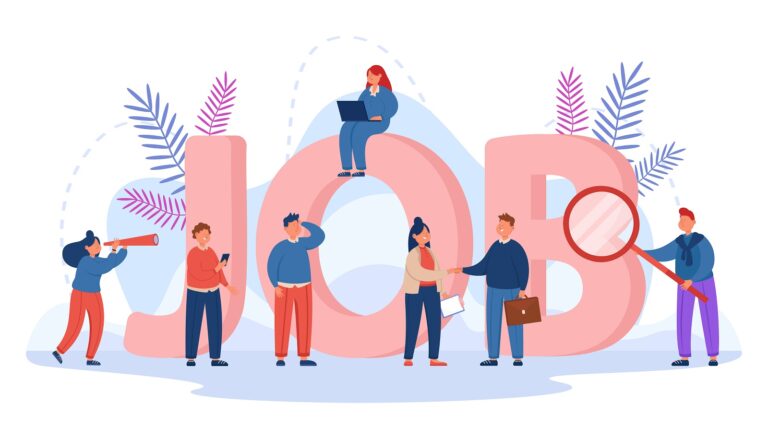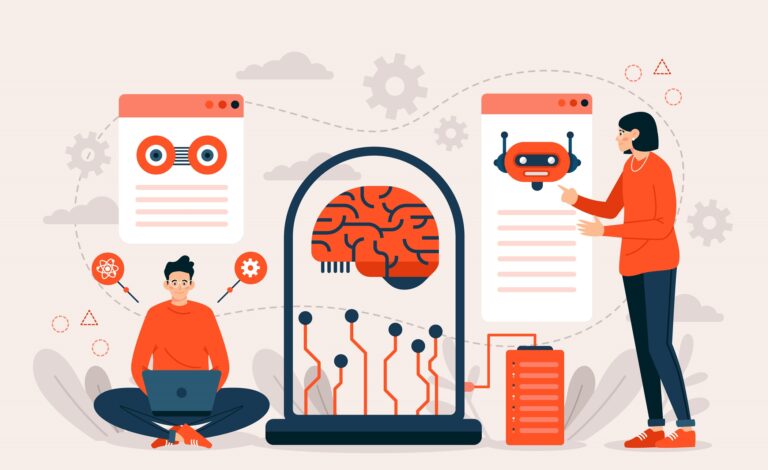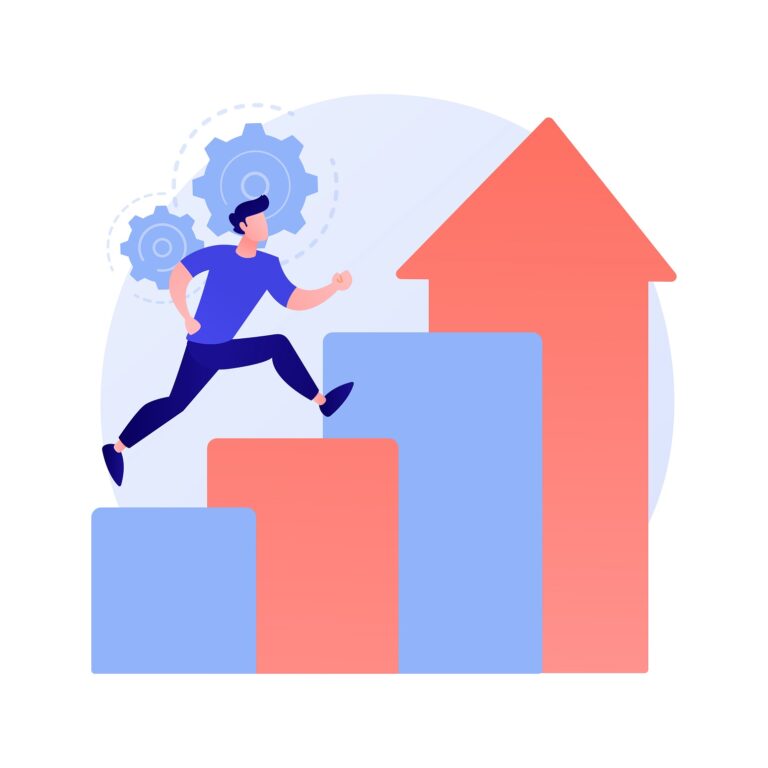AI and the Future of Work: Preparing for New Career Opportunities
This article explores the transformative role of Artificial Intelligence in the future of work and how it’s creating new career opportunities. We delve into the impact of AI on the job landscape, its role in creating new jobs, the need for upskilling, and its influence on remote work and job security. Through case studies in healthcare and tech, we illustrate these shifts in the job market. The article concludes with a forward-looking discussion on preparing for an AI-driven job market, emphasizing the importance of adaptability, continual learning, and harnessing AI’s potential for a promising career future.
I. Introduction
A. The Intersection of AI and the Future of Work
The advent of Artificial Intelligence has unlocked a Pandora’s box of possibilities across various sectors, including the way we work. AI is no longer the domain of science fiction, but an integral part of our daily professional lives. By automating repetitive tasks, offering deep insights into big data, and even enabling creative problem-solving, AI has the potential to reshape the future of work dramatically. But what does this intersection of AI and work mean for us as professionals, and how does it alter the career landscape?
B. Importance of Preparing for AI-Driven Career Opportunities
The rise of AI also brings a multitude of new career opportunities. These aren’t limited to tech roles; they permeate almost every industry. As AI continues to evolve, it is critical for current and future professionals to prepare for these AI-driven career opportunities. Embracing AI literacy, cultivating a mindset of lifelong learning, and developing adaptable skills will be essential in staying relevant in this exciting, AI-fueled future.
II. AI and Job Landscape
A. Understanding the Impact of AI on Job Landscape
AI has a profound impact on the job landscape. On one hand, it automates repetitive, mundane tasks, freeing up human workers to focus on more strategic, creative, and higher-order tasks. This shift could lead to job displacement in certain sectors, such as manufacturing or data entry. On the other hand, AI also creates new jobs. Roles such as AI ethicists, AI specialists, data scientists, and AI experience designers are on the rise. Understanding these shifts is crucial in navigating the AI-impacted job market.
B. Industries Most Affected by AI
While AI affects virtually every industry, its impact is particularly prominent in some. The tech industry is an obvious example, with AI reshaping everything from software development to cybersecurity. Healthcare is also experiencing significant AI-driven transformation, with advancements in diagnostics, patient care, and administrative tasks. Similarly, the manufacturing sector is leveraging AI for automation and predictive maintenance, and the retail industry is using AI for personalized customer experiences and inventory management. Knowing how AI is impacting your industry can guide your preparation for future career opportunities.
III. AI and Job Creation
A. AI’s Role in Creating New Jobs
Far from being a harbinger of a jobless future, AI is actually a catalyst for job creation. It is paving the way for entirely new roles that we couldn’t have imagined a few years ago. AI needs humans to build, maintain, and monitor its systems. This leads to an increase in jobs like AI engineers, data scientists, machine learning specialists, and AI ethicists. Plus, the integration of AI into various sectors is creating jobs that blend AI expertise with industry-specific knowledge.
B. Examples of Emerging AI-Driven Careers
Some AI-driven careers are already taking shape. AI ethicists, for instance, are needed to ensure AI systems are designed and used ethically. In healthcare, we see the rise of roles like AI-assisted healthcare technicians who use AI tools for diagnosis and treatment. The marketing sector is seeing a surge in demand for AI marketing strategists who use AI-driven insights to create effective marketing strategies. These roles represent just the tip of the AI-job iceberg, with many more AI-driven careers set to emerge.
IV. Upskilling for AI-Driven Economy
A. The Importance of Upskilling in the AI Era
In the AI era, upskilling becomes not just an advantage, but a necessity. As AI changes the job landscape, the skills needed for success are also evolving. To stay competitive and take advantage of new opportunities, professionals need to continuously learn and adapt. Upskilling can involve gaining technical skills like programming or understanding AI algorithms, but it also means enhancing soft skills like critical thinking and creativity that AI can’t replicate.
B. Key Skills for AI-Driven Careers
While the specific skills needed can vary depending on the job, some skills will be broadly valuable in an AI-driven economy. Technical skills such as data literacy, programming, and understanding of AI and machine learning principles are critical. However, equally important are soft skills like problem-solving, creativity, emotional intelligence, and the ability to work collaboratively with AI. Furthermore, an entrepreneurial mindset that embraces change and sees AI as an opportunity rather than a threat can set professionals up for success in the AI era.
V. AI and Remote Work
A. The Impact of AI on Remote Work
The global shift towards remote work, accelerated by the COVID-19 pandemic, is being further catalyzed by AI. AI-powered tools are making remote work more manageable and productive. By automating repetitive tasks, AI allows remote workers to focus on more strategic, creative aspects of their work. Furthermore, AI-driven communication and collaboration tools are bridging physical gaps, making it easier for distributed teams to work together effectively.
B. Utilizing AI Tools for Efficient Remote Work
Leveraging AI tools can significantly enhance the efficiency and effectiveness of remote work. AI-powered project management tools can assist in tracking progress and maintaining productivity. Meanwhile, AI chatbots can handle routine queries, freeing up time for more complex tasks. Virtual assistants, powered by AI, can manage calendars, set reminders, and automate a variety of administrative tasks. Learning how to use these tools can be a significant step towards thriving in a remote, AI-driven work environment.
VI. AI and Job Security
A. How AI is Shaping Job Security
AI is undeniably transforming the job market, causing some degree of uncertainty and concern over job security. Certain roles, particularly those involving repetitive, rule-based tasks, are at risk of being automated. However, it’s essential to remember that while AI may displace some jobs, it also creates new ones, often more fulfilling and less monotonous. The key to job security in this evolving landscape is adaptability and a willingness to learn and grow with the technology.
B. Strategies to Enhance Job Security in the AI Era
To enhance job security in the AI era, professionals should focus on building skills that complement AI. This involves continuous learning and upskilling, embracing technical skills, and also nurturing uniquely human skills like creativity, critical thinking, and empathy. Understanding the basics of AI and staying informed about AI trends in one’s industry can also help individuals foresee changes and prepare accordingly. Moreover, being open to change and demonstrating flexibility can greatly enhance job security in a rapidly evolving job market.
VII. Case Studies
A. Case Study 1: AI and Work in Healthcare
Artificial Intelligence (AI) has revolutionized the healthcare sector, bringing a paradigm shift in how care is delivered and managed. A prime illustration of this transformation can be found in the area of predictive analytics. These sophisticated AI algorithms integrate diverse data sets – from patient medical records to wearable technology data – and generate accurate predictions about individual health risks. This predictive power enables healthcare professionals to design personalized treatment regimens and carry out preventative interventions, significantly enhancing patient outcomes.
Additionally, AI is steadily easing the administrative burden in healthcare. In a busy hospital, scheduling patient appointments and addressing numerous queries can be time-consuming and error-prone. Here, AI chatbots prove to be invaluable. These intelligent virtual assistants can autonomously handle appointment scheduling, deliver reminders, and address frequently asked patient queries, thereby improving efficiency and reducing the risk of human error.
Another significant application of AI lies in the domain of billing and insurance claims processing. With the assistance of AI-driven tools, this cumbersome process can be streamlined to a significant degree. These tools can automatically verify insurance eligibility, code and check claims, flag potential errors, and submit claims for processing. As a result, healthcare workers can spend less time on paperwork and more time on delivering patient care.
B. Case Study 2: AI and Work in the Tech Industry
The tech industry, known for its propensity for innovation and early adoption of technologies, offers an insightful case study of AI’s transformative power. The realm of software development, for instance, is being remodeled by AI’s influence. AI-driven tools are now capable of automating significant portions of the coding process, from initial code generation to debugging. This automation accelerates the software development lifecycle, allowing developers to shift their focus towards more complex and creative aspects of their work, such as designing innovative features or enhancing user experience.
Similarly, the domain of data analysis has been fundamentally altered by AI. Traditional data analysis can be time-intensive and struggle with large, complex datasets. However, AI algorithms excel in these areas. They can rapidly process and analyze vast quantities of data, detecting patterns and correlations that might go unnoticed by human analysts. These swift and accurate insights empower tech companies to make informed business decisions, align their products and services with market trends, and stay competitive in the rapidly-evolving digital landscape. In short, AI is not merely a tool in the tech industry – it’s a game-changer, reshaping roles, tasks, and future prospects.
VIII. Conclusion
A. Recap of AI’s Impact on the Future of Work
AI is significantly transforming the job landscape, creating new career opportunities, and shaping the nature of work in various industries. It has the potential to automate mundane tasks, foster efficient remote work, and even create entirely new jobs. The key to thriving in this evolving environment lies in continual learning, adaptability, and the ability to leverage AI tools to enhance productivity and creativity.
B. The Future Outlook: Preparing for New Career Opportunities in the AI Era
Looking ahead, AI will continue to be a defining force in the job market. As we navigate this AI-driven era, it’s crucial to stay informed about AI trends, upskill continuously, and embrace the possibilities that AI brings. With the right preparation, professionals can turn the AI evolution from a challenge into a wealth of career opportunities. Let’s embrace the future of work with open minds and a readiness to adapt and learn.







